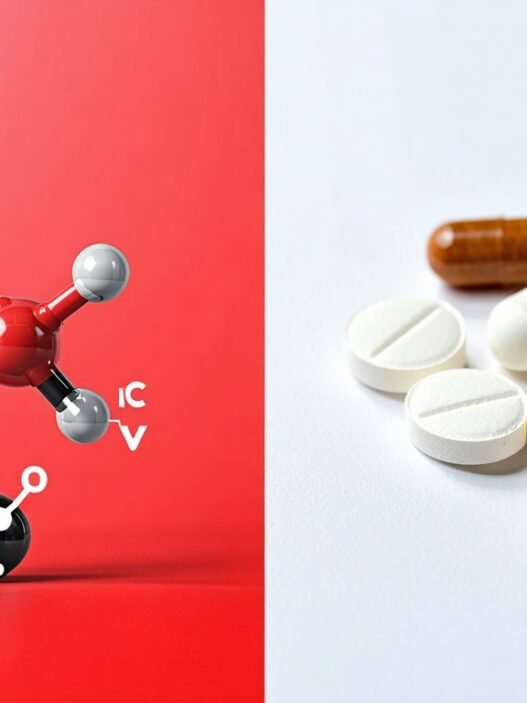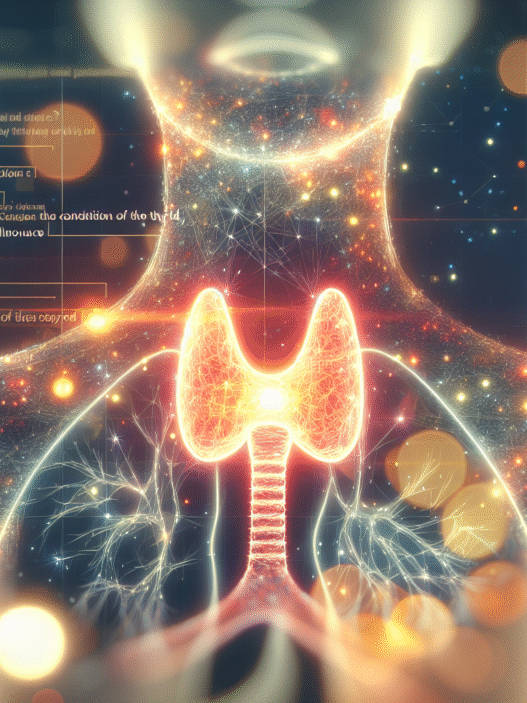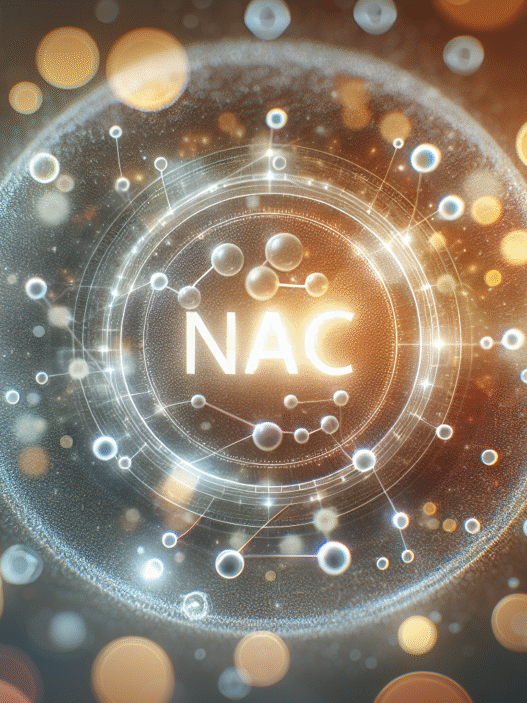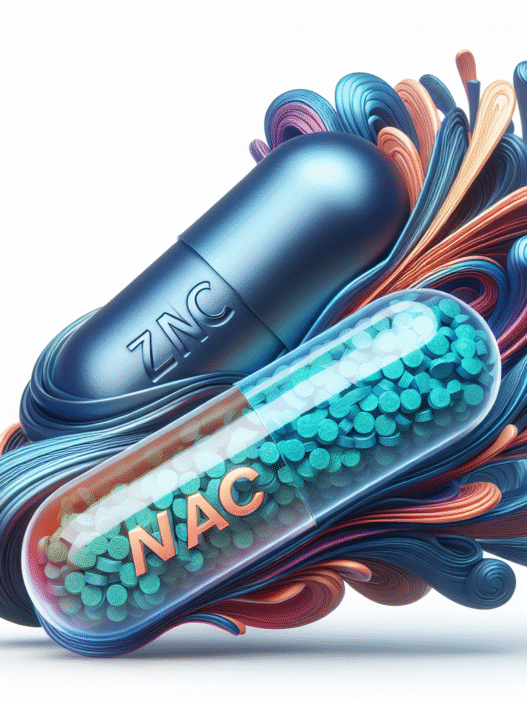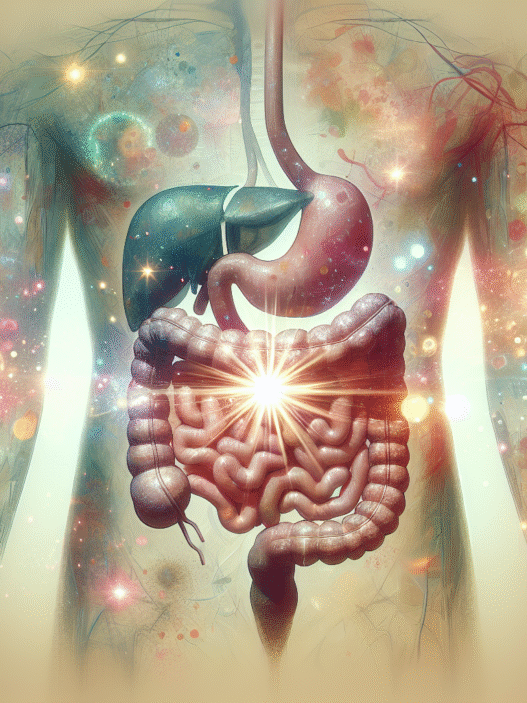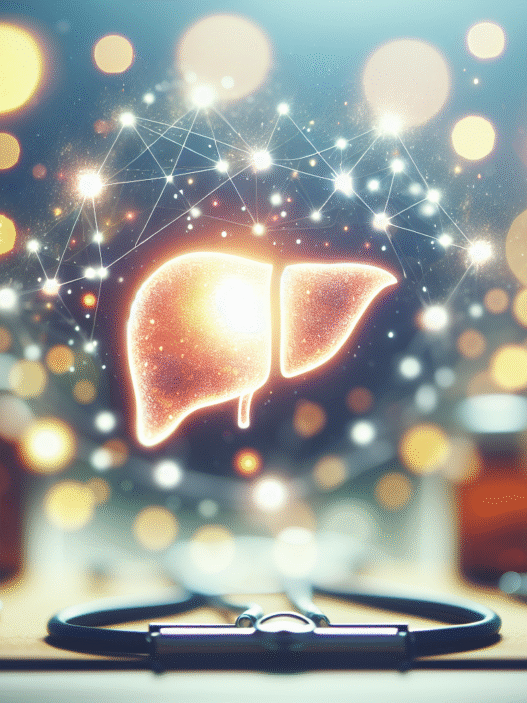Understanding N-Acetyl Cysteine (NAC)
N-Acetyl Cysteine (NAC) is a powerful compound that plays a significant role in promoting overall health, particularly in terms of detoxification and antioxidant support. This section delves into its functions concerning glutathione replenishment and its impact on detoxification.
Role in Glutathione Replenishment
NAC is a precursor to glutathione, often referred to as the body’s most potent antioxidant. This crucial molecule is composed of three amino acids: glutamine, glycine, and cysteine. When NAC is metabolized, it helps replenish glutathione levels within cells, enhancing the body’s ability to neutralize free radicals and prevent oxidative damage (Healthline). The restoration of glutathione supports the immune system and is linked to reducing the risk of chronic conditions, including cardiovascular diseases.
Recent studies highlight that NAC’s primary functions are associated with its antioxidant and anti-inflammatory properties. By maintaining a balanced cellular environment, NAC assists in mitigating the effects of oxidative stress, which is a contributing factor in many diseases.
| Function | Description |
|---|---|
| Antioxidant Support | Replenishes glutathione, neutralizing harmful free radicals. |
| Immune Support | Boosts immune function through enhanced antioxidant production. |
| Chronic Disease Risk Reduction | May help lower risks associated with cardiovascular diseases. |
Impacts on Detoxification
NAC plays a vital role in the body’s detoxification processes. It helps in the breakdown and elimination of toxins, mitigating the side effects of environmental toxins. By enhancing glutathione levels, NAC aids in neutralizing harmful substances that can accumulate in the liver and other tissues, thus facilitating their excretion (Healthline).
The detoxification capabilities of NAC extend to various environments, making it beneficial for individuals exposed to pollutants, chemicals, or certain medications that may strain liver function. Its ability to be administered orally, intravenously, or through inhalation allows for rapid absorption and effective detoxification.
| Method of Administration | Benefits |
|---|---|
| Oral | Convenient, suitable for daily doses. |
| Intravenous | Rapid absorption for acute conditions. |
| Inhalation | Targets the lungs, beneficial for respiratory conditions. |
Overall, NAC’s role in glutathione replenishment and detoxification illustrates why it is becoming an increasingly popular supplement for those concerned about liver health and overall longevity. For more insights into the benefits of NAC, see our article on n-acetyl cysteine benefits.
Health Benefits of NAC
N-Acetyl Cysteine (NAC) is increasingly recognized for its diverse health benefits, particularly in relation to mental health, lung function, and neurological conditions.
Mental Health Conditions
Research indicates that NAC may aid in managing various mental health conditions, including bipolar disorder, schizophrenia, obsessive-compulsive disorder (OCD), and substance use disorders. NAC’s effectiveness stems from its ability to regulate glutamate levels and decrease glutathione depletion, essential processes for maintaining mental stability. For instance, studies suggest that NAC can alleviate symptoms of bipolar disorder and depression. It may also enhance the quality of life for those dealing with these conditions. Here is a summary of its effects:
| Condition | Impact |
|---|---|
| Bipolar Disorder | Reduced symptoms and improved management |
| Schizophrenia | Potential symptom alleviation |
| OCD | Decreased symptoms observed |
| Substance Use Disorders | Lower cravings and improved control |
Lung Function Improvement
NAC has been shown to play a significant role in improving lung function, particularly for those suffering from respiratory conditions. It acts as a mucolytic agent, helping to thin and loosen mucus in the airways, which can enhance airflow and reduce the frequency of respiratory distress.
| Condition | Effect |
|---|---|
| Chronic Obstructive Pulmonary Disease (COPD) | Improved lung function and reduced distress |
| Interstitial Lung Fibrosis | Potentially beneficial for symptoms |
Notably, in patients with chronic respiratory conditions like COPD and interstitial lung fibrosis, NAC supplementation may assist in managing symptoms more effectively.
Neurological Conditions Treatment
NAC is increasingly recognized for its potential in treating various neurological conditions. Research indicates that NAC may benefit conditions such as Alzheimer’s and Parkinson’s disease by boosting brain health through the regulation of glutamate levels and replenishing glutathione.
| Condition | Benefits |
|---|---|
| Alzheimer’s | May slow cognitive decline and loss of thinking ability |
| Parkinson’s | Can improve symptoms like tremors and dopamine function |
Although the findings are promising, further research is necessary to solidify these benefits in human studies (Healthline).
Exploring the broad spectrum of n-acetyl cysteine benefits illustrates its significance in promoting overall health and wellness, particularly for those concerned with longevity and specific health challenges.
NAC for Specific Health Conditions
N-acetyl cysteine (NAC) has garnered attention for its potential benefits in addressing various health conditions. This section highlights NAC’s effectiveness in managing polycystic ovary syndrome (PCOS), chronic obstructive pulmonary disease (COPD), and interstitial lung fibrosis.
Polycystic Ovary Syndrome
NAC has shown promising results in improving insulin sensitivity in women with polycystic ovary syndrome. This hormonal disorder can lead to various complications, including irregular menstrual cycles and increased risk of diabetes. By enhancing insulin sensitivity, NAC can help regulate blood sugar levels, which is crucial for managing symptoms associated with PCOS.
For women seeking various treatment options, incorporating NAC into their regimen may complement other therapies for PCOS, potentially leading to improved reproductive health and metabolic outcomes.
| Benefit of NAC for PCOS |
|---|
| Enhances insulin sensitivity |
| Regulates blood sugar levels |
Chronic Obstructive Pulmonary Disease (COPD)
NAC demonstrates protective effects against oxidative stress in patients with chronic obstructive pulmonary disease. Individuals with COPD often experience heightened oxidative stress due to the impact of low oxygen therapy on lung function. NAC may help mitigate these effects, thus improving the overall respiratory health of affected individuals (PubMed).
Moreover, regular NAC administration can contribute to better lung function and a reduction in symptom severity, thereby enhancing the quality of life for COPD patients. It can be especially beneficial in conjunction with standard treatment protocols.
| Benefit of NAC for COPD |
|---|
| Protects against oxidative stress |
| Improves lung function |
Interstitial Lung Fibrosis
NAC has also emerged as a therapeutic option for interstitial lung fibrosis, a condition characterized by scarring of lung tissue. Research indicates that NAC is effective in minimizing adverse effects in patients undergoing bleomycin therapy, which is often used to treat this condition. Its antioxidant properties help reduce inflammation and injury to lung cells, promoting overall lung health (PubMed).
Patients dealing with interstitial lung fibrosis may find that NAC offers additional support in managing their condition, particularly when integrated into their treatment plans.
| Benefit of NAC for Interstitial Lung Fibrosis |
|---|
| Minimizes adverse effects of therapy |
| Reduces inflammation in lung tissue |
In summary, N-acetyl cysteine stands out as a valuable supplement for managing polycystic ovary syndrome, chronic obstructive pulmonary disease, and interstitial lung fibrosis. For those interested in exploring the various n-acetyl cysteine benefits, incorporating NAC may greatly assist in improving overall health outcomes.
NAC’s Antioxidant Properties
N-Acetyl Cysteine (NAC) is well-known for its remarkable antioxidant properties, making it a valuable supplement for maintaining overall health, particularly for skin health. Its capability to boost glutathione production and neutralize free radicals contributes to its effectiveness in combating oxidative stress.
Glutathione Production
NAC plays a pivotal role in replenishing glutathione, the body’s “master antioxidant.” This powerful substance is crucial for combating oxidative stress and protecting cells from damage. Research suggests that by supporting the production of glutathione, NAC can aid in improving various health conditions and enhancing one’s overall antioxidant defense system.
The relationship between glutathione and oxidative stress is significant as glutathione acts to neutralize harmful free radicals that accelerate aging and contribute to skin issues.
| Substance | Role |
|---|---|
| Glutathione | Potent antioxidant that protects against oxidative stress |
| NAC | Replenishes glutathione and enhances overall antioxidant system |
A robust level of glutathione not only bolsters health but also aids in protecting the skin, making NAC an important supplement for individuals focusing on anti-aging and skin rejuvenation. For further insights, readers can explore the n-acetyl cysteine skin benefits.
Free Radical Neutralization
NAC’s ability to neutralize free radicals is another key aspect of its antioxidant properties. Free radicals are unstable molecules that can damage skin cells, leading to visible signs of aging such as wrinkles and fine lines (111SKIN). By countering these harmful molecules, NAC helps preserve skin integrity and youthful appearance.
Through its function in free radical neutralization, NAC not only supports skin health but also represents a strategic approach in anti-aging regimes. For those interested in exploring more about how this supplement influences skin, the article on nac for skin health provides valuable information.
By integrating NAC into daily routines, individuals concerned with longevity and skin vitality can harness its antioxidant benefits to promote healthier skin and mitigate signs of aging effectively.
NAC in Dermatologic Conditions
N-Acetyl Cysteine (NAC) has been studied for its potential benefits in various dermatological conditions. Its ability to enhance wound healing and provide antioxidant protection makes it a valuable supplement for individuals dealing with specific skin disorders.
Excoriation Disorder
Excoriation disorder, also known as skin-picking disorder, involves recurrent skin picking that leads to lesions. NAC may help alleviate the symptoms associated with this condition due to its antioxidant and anti-inflammatory properties. By reducing oxidative stress, NAC may promote healing and recovery of the skin. Additionally, its ability to support glutathione levels can be crucial for regulating the skin’s response to irritation and promoting overall skin health. This aligns with various n-acetyl cysteine benefits that emphasize its role in skin rejuvenation and healing.
Onychophagia Disorder
Onychophagia, commonly known as nail-biting, can lead to damaged nails and surrounding skin, increasing the risk of infection. NAC might assist in the treatment of this behavior by decreasing anxiety levels, which often contribute to the disorder. Furthermore, its antioxidant properties can support skin integrity around the nails, contributing to healthier skin and faster healing of any inflicted damage. For more details on how NAC can assist with skin health, check our page on n-acetyl cysteine for skin.
Trichotillomania
Trichotillomania is characterized by the compulsive urge to pull out one’s hair, which can result in noticeable hair loss and skin damage. NAC has been considered a therapeutic option for those suffering from this condition as it may help reduce impulse-control issues. Its role in managing oxidative stress and supporting skin health can help accelerate recovery and minimize damage to the scalp and surrounding skin. Research indicates NAC’s effects on various skin conditions, pointing to its potential in improving skin resilience in impacted areas. For further insights, explore NAC for skin rejuvenation.
In summary, NAC’s antioxidant properties and capacity to facilitate healing make it a compelling option for individuals experiencing dermatological conditions such as excoriation disorder, onychophagia, and trichotillomania. As studies emerge highlighting its role in wound healing (PubMed Central), NAC offers hope for better skin health and overall well-being.
NAC for Skin Health
Antioxidant Defense for Skin
N-Acetyl Cysteine (NAC) plays a vital role in enhancing skin health due to its potent antioxidant properties. It acts by neutralizing free radicals, which are responsible for damaging skin cells and contributing to visible signs of aging such as wrinkles and fine lines (111SKIN). Through its ability to support the production of glutathione, the body’s “master antioxidant,” NAC fortifies the skin’s antioxidant defense system. This may help combat oxidative stress and maintain a youthful appearance.
| Antioxidant Property | Benefit |
|---|---|
| Neutralizes Free Radicals | Reduces damage to skin cells |
| Supports Glutathione Production | Enhances skin’s antioxidant defense |
| Protects Against Aging Signs | Maintains skin elasticity and integrity |
For more on how NAC contributes to skin health, visit our article on n-acetyl cysteine skin benefits.
Stimulating Collagen Production
Another significant benefit of NAC is its potential to stimulate collagen production. Collagen is essential for maintaining skin structure and elasticity, and decreased levels can lead to sagging skin and the formation of wrinkles. Research suggests that a specific form of NAC, known as NAC Y²™, may enhance collagen synthesis (111SKIN). This impact can lead to firmer, smoother skin with a reduction in fine lines and wrinkles, making it particularly beneficial for individuals seeking anti-aging solutions.
| Collagen Benefit | Effect |
|---|---|
| Firmness | Enhances skin texture |
| Smoothness | Reduces appearance of fine lines |
| Youthful Appearance | Supports overall skin health |
For further insights into NAC’s role in skin rejuvenation, check our article on nac for skin rejuvenation.














